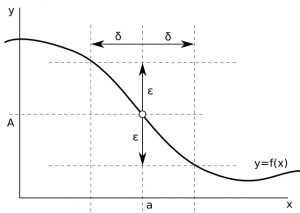One of the theories posited by Marx that is of chief importance for the radical left particularly today but also in general, is the theory that the material base of capitalism is geared towards socialism.
Simply stated the theory posits that the development of capitalism creates a centralization of the means of production, taking them out of the hands of small property owners and into larger and larger units which leads to the creation of a large class of wage labourers and a smaller class of owners.
The general concentration of society in these two classes then creates the material base for socialist ideologies, as the much more complex class structure of previous modes of production failed to produce class based liberatory ideologies with a broad following, in contrast capitalist society has a much more simplistic class structure and thus allows for ideologies that explicitly base themselves on class contradictions to have more societal relevance and thus a wider following. Besides that, the centralization of the means of production makes it so that labour becomes more and more a collective project, making it easier for the workers to establish links of solidarity with one another and view themselves as one class compared to when they are self-employed and compete with one another. This process also allows for a continuing replacing of competition between smaller, individualized enterprises with internal cooperation within larger enterprises, thus creating a situation where the production process undergoes a process of limited socialization under capitalism, creating a material base for socialism within capitalism.
And although these concepts and theories provide a valuable range of analytical tools, they do not take into account certain processes within capitalism that could potentially blunt their development and consequently also limit the usefulness of the observations that are associated with them. And seeing that the interpretation of these concepts is quite crucial for my upcoming article on having an economic transition before having a political transition, as the concept of socialization under capitalism is sometimes presented as a form of development of socialism within capitalism that would be the socialist equivalent for the development of capitalism within feudalism; I will offer in this article a brief critique of why this theory is more problematic in practice than is often assumed.
First let me start out by saying that the centralization of the means of production and the enterprise under capitalism is an observable feat that certainly made sense in the time of Marx and the great workers’ revolutions. But over time it has been observed that this centralization is not the neutral irreversible process that it was made out to be, rather it turns out that the organization of the enterprise under capitalism is used as a tool in class struggle. The capitalist will thus adapt the structure of the enterprise to diffuse potential sources of workers’ resistance, and prevent the establishment of links of solidarity and class consciousness that could provide problems to the smooth management of the enterprise. The breaking up of the big workers’ “citadels” such as the car factories and mines is testament to how capitalism will disrupt the before mentioned process sketched by Marx. Further examples of the use of the structure of the enterprise to disrupt workers’ organization include: transporting industries to more repressive third world countries, decentralizing production (for example many high tech car factories in India are supplied by back-yard workshops), automating production, diversifying work (for example the increasing divide between intellectual labour and physical labour), individualizing work (for example the increased use of freelance labour or the use of subcontractors)…etc.
A second more obvious contradiction to Marx’s theories is simply the fact that small businesses still exist in significant quantities. So for example in the US it is pretty much a rule of thumb that businesses with less than 500 employees make up about half of the businesses, GDP and employ about half the workers in the US, with only a relatively minor tendency towards the lowering of this ratio in the last 20 years; with about slightly over 10% of the total workforce being self-employed in the US in 2009, a percentage that has also remained pretty much stable over the last 20 years. Thus the fact that there remains a significant petty-bourgeoisie sector notwithstanding the strong development of capitalism in the US provides another problem for Marx’s theory.
This of course does not mean that the entire theory is faulty, as it was very much observable during the earlier periods of capitalism and as a generalized tendency throughout capitalism, nevertheless thanks to the nuances I provided in this article I think it is viable to state that the notion that the material base of capitalist society tends towards socialism is very much a problematic one. Chiefly because the material base of capitalist society is not something that is neutral, but rather a tool that is molded to advance class struggle primarily by the capitalist class, of course within the confines of the framework provided by capitalism. This of course makes the task of revolutionaries in instilling a subjective consciousness that is built upon the material conditions within capitalism very much more difficult. And more importantly, the natural development of socialization under capitalism is not a dependable enough process to rely on when expecting the development of a socialist economic base upon which a political transition can take place.












Pingback: The nature of the economic transition | Spirit of Contradiction